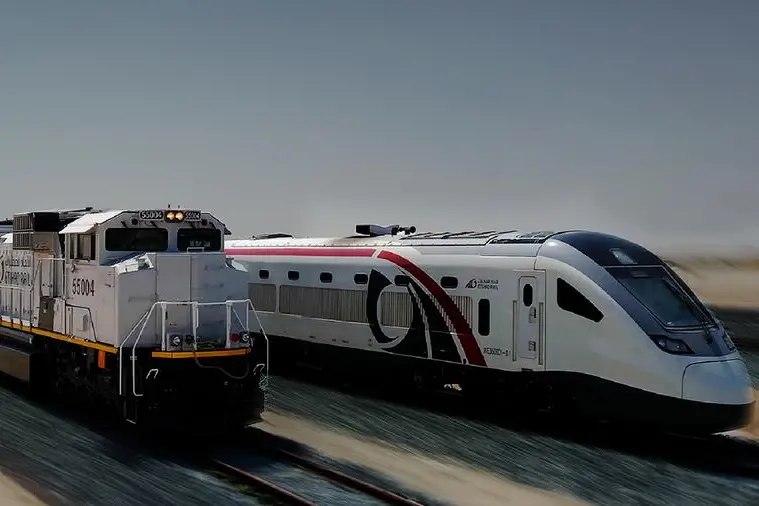A landmark meeting between Etihad Rail CEO Shadi Malak and Kuwait’s Minister of Public Works, Dr. Noura Mohammed Khaled Al-Mishaan, has set the stage for a powerful new chapter in Gulf regional connectivity. Held in Kuwait City, this high-level discussion marked a decisive step towards a unified GCC railway network, one that promises to transform trade, travel, and sustainability across the region.
A Vision of Shared Progress
The gathering was more than a symbolic handshake; it was an active commitment to a future in which Gulf nations move forward together on rails of progress. Dr. Al-Mishaan underlined Kuwait’s unwavering dedication to establishing a state-of-the-art national railway system, emphasizing that this initiative is deeply aligned with the country’s broader development and diversification goals.
Etihad Rail’s journey in the UAE has already demonstrated the transformative power of strategic rail infrastructure. From reducing road congestion to slashing carbon emissions, the UAE’s success story offers a clear roadmap for Kuwait and the wider GCC. By tapping into this expertise, Kuwait aims to accelerate its own rail ambitions, creating a transport backbone that supports economic growth and environmental stewardship.

Strengthening the Gulf’s Economic Backbone
At the heart of this cooperation lies a bold economic vision: to create an integrated GCC railway that acts as an economic superhighway, connecting cities, ports, and industrial hubs from Kuwait to Oman. For businesses, this means faster, more reliable freight routes that will drastically cut transport costs and improve supply chain efficiency. For passengers, it signals the dawn of convenient, high-speed travel across Gulf borders, making multi-country commutes a reality rather than a dream.
A unified rail network also enhances resilience, reducing reliance on single transport modes and mitigating the risks posed by road congestion or port bottlenecks. By moving a significant portion of cargo and passenger traffic onto rails, the region can strengthen its infrastructure and support broader diversification away from oil-centric economies.

Environmental Leadership Through Rail
Beyond economics, this ambitious project stands as a testament to environmental leadership. Rail transport is widely acknowledged as one of the most energy-efficient modes of land transportation, offering substantial reductions in greenhouse gas emissions compared to road freight and aviation. By championing rail, Kuwait and its GCC partners are making a strong statement about their commitment to combatting climate change and promoting greener development paths.

The UAE’s experience with Etihad Rail has already yielded millions of tonnes in carbon savings. Kuwait is now eager to replicate and expand upon these successes. The potential for a cleaner, quieter, and more efficient transport system resonates deeply with citizens and leaders alike, shaping a future where economic growth and environmental responsibility go hand in hand.
Technical Collaboration and Knowledge Sharing
One of the most significant outcomes of this meeting was the commitment to robust technical collaboration. Kuwait plans to adopt best practices from the UAE’s extensive rail network development, including advanced safety systems, sustainable design approaches, and streamlined project management frameworks. This cross-border sharing of knowledge not only accelerates project timelines but also reduces costs and improves quality outcomes.
A detailed presentation of Kuwait’s railway plans demonstrated the country’s readiness to move quickly from concept to execution. From station design to rolling stock specifications, every element is being planned to meet global standards while reflecting local needs and aspirations. Moreover, the inclusion of smart technologies and automation is expected to set a new benchmark for efficiency and passenger experience in the region.
Building National Talent and Creating Jobs
The promise of a national railway system extends far beyond the tracks themselves. It represents a powerful catalyst for human capital development. As Kuwait embarks on this ambitious journey, thousands of skilled and semi-skilled jobs will be created in engineering, construction, operations, and maintenance. Additionally, local universities and vocational institutes are expected to expand programs related to rail technology, logistics, and transport planning, empowering a new generation to take part in this transformative industry.
For Kuwait’s youth, the railway project offers a chance to be part of a historic national endeavor — one that not only builds critical infrastructure but also instills pride, purpose, and progress. Investing in homegrown talent ensures that the benefits of the railway project are felt across society, creating long-term economic and social value.
Enhancing Regional Diplomacy and Unity
On a strategic level, the cooperation signals stronger political and economic ties among GCC countries. The rail network is more than metal tracks and trains — it is a living, breathing symbol of regional unity and a shared future. By weaving a physical link between Gulf nations, the project also fosters cultural exchange and mutual understanding, contributing to a more cohesive and resilient region.
With frequent political and economic forums taking place across the GCC, the railway stands to become a permanent fixture on the agenda, reinforcing a collective commitment to growth, peace, and prosperity. Enhanced connectivity makes it easier for people and goods to move seamlessly, breaking down barriers and creating a shared sense of opportunity.
Future Prospects: Freight, Passengers, and Beyond
Looking ahead, the GCC railway vision does not stop at freight. Plans for high-speed passenger trains promise to reshape travel as we know it, cutting travel times drastically and offering a comfortable alternative to both driving and flying. Business executives, families, and tourists alike stand to benefit from reliable, affordable, and efficient regional mobility.
Moreover, future extensions could connect rail networks to major ports and airports, creating a truly multimodal transport system. Such integration would supercharge trade flows, streamline logistics, and support the rise of regional distribution hubs. This could elevate the GCC’s status as a global trade gateway linking Asia, Europe, and Africa.
A Catalyst for Broader Development
The railway project is also expected to catalyze urban and economic development around new stations and logistic hubs. Transit-oriented development can stimulate new residential communities, commercial centers, and industrial clusters, injecting vibrancy and investment into previously underdeveloped areas. This ripple effect multiplies the economic returns of the rail project far beyond ticket sales and freight fees.
Furthermore, greater connectivity encourages regional tourism, opening up hidden gems across the Gulf to both regional and international visitors. The potential for themed tourism trains, cross-country festival trips, and heritage rail experiences adds an exciting dimension to the cultural and leisure economy.
Timeline and Next Steps
Following the meeting, Kuwait plans to accelerate feasibility studies, finalize early-stage designs, and set up specialized technical working groups with Etihad Rail and other GCC stakeholders. The target is to align national plans with the overarching GCC railway vision, ensuring compatibility and a seamless passenger and freight experience across borders.
The timeline aims for substantial progress within the next five years, with phased openings possible by the end of the decade. Parallel to this, efforts to secure financing, develop regulations, and procure state-of-the-art equipment will continue at a rapid pace. The focus on public-private partnerships is likely to attract both regional and international investors keen to participate in one of the Middle East’s most transformative infrastructure ventures.
A Shared Future on the Horizon

As the meeting concluded, there was a palpable sense of optimism and shared purpose. Both leaders reaffirmed their commitment to turning bold visions into concrete realities. By pooling resources, expertise, and determination, Kuwait and the UAE are not only laying tracks but building bridges — bridges that connect economies, cultures, and people.
This is more than a transport project; it is a defining moment in Gulf history. A future where students can travel from Kuwait to Abu Dhabi for studies, where businesses can ship goods overnight across the region, and where families can embark on cross-border adventures with ease — this is the promise of the GCC railway.
As steel meets sand and trains prepare to roar across the desert, the Gulf is gearing up for an era of unprecedented growth and unity. The journey has begun, and its destination is nothing less than a future defined by connectivity, sustainability, and shared prosperity.
Do follow UAE Stories on Instagram
Read More: Beating the Ban: Nepalis Use VPNs to Talk to Family












